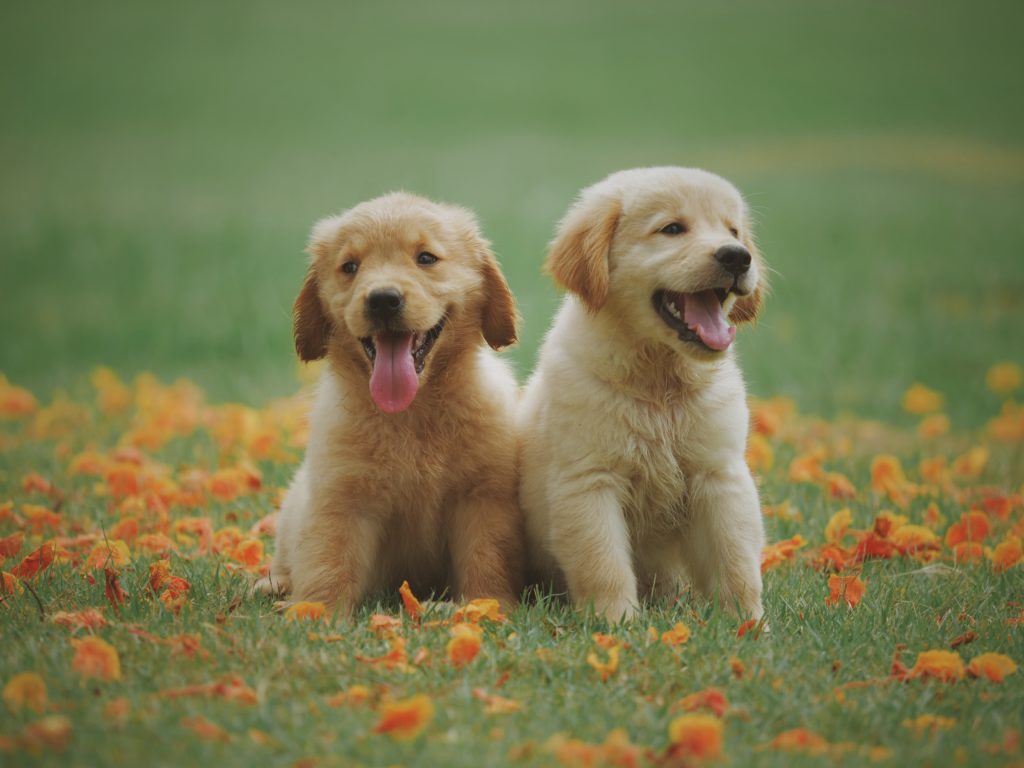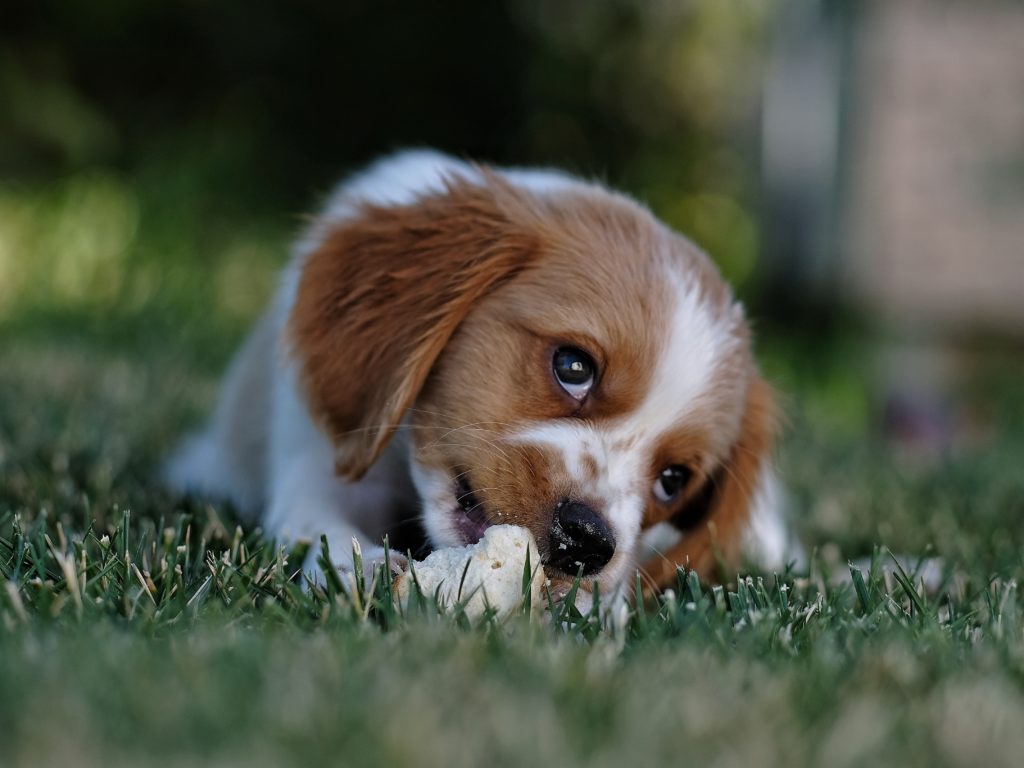1. Socialisation
Between the age of 6 to 14 weeks it is critically important that puppies are socialised. Socialisation is how puppies learn how to communicate and interact with other animals. Poorly socialised dogs can become very timid, fearful or even aggressive. Learning how to communicate and behave with other people and animals is a crucial part of puppy life.
Puppies are not fully protected by their vaccinations until after this critical period but it is very important to socialise puppies; hence I recommend introducing your pup to other full-vaccinated dogs, cats that are used to dogs, and all of your friends.
Playing with toys, verbal praise and receiving a few treats will help your puppy associate new situations and friends with a positive experience.

2. Habituation
Getting your puppy used to a wide range of sounds, sights, tastes and smells at a young age is crucial to the development and education. Getting used to different environments as a pup means that they are then more confident when they experience new situations as an adult.
From a veterinary point of view, it is very helpful that puppies learn that being examined is nothing to worry about. From a young age, gently start looking at their teeth, playing with their toes and handling their ears. This helps hugely with our Fear Free approach and makes a veterinary examination less stressful for all. Getting your friends and family to do this as well can help dogs learn that it’s ok for strangers to handle them gently.
Combining any new experience with praise, favourite toys and treats is a fantastic way to build a positive experience and grow your puppy’s confidence.

3. Stimulation
Keeping your puppy physically and mentally stimulated will prevent boredom and frustration; both of which lead to behavioural problems. It’s true that most puppies live in a “Eat, Sleep, Play, Repeat’ cycle and providing stimulating activities uses their energy well and can lead to the
Playing with young puppies multiple times per day is a fantastic way to start until they are able to go outside after their vaccinations. Getting them used to wearing a collar or harness indoors and walking on a lead will pay dividends when you can finally explore the outside world with them.
Toys that require your puppy to work out how to get a reward provide excellent mental stimulation and keep them occupied for a little while.
4. Training
Toilet training may be the first hurdle you may arrive at, or you may be very lucky. Start by picking a spot, just one. Doesn’t really matter where but it must be the place that you take your puppy to each time it’s time to use the toilet. Until your puppy is protected by vaccinations we advise that this is a puppy pad indoors or a disinfectable surface such as an enclosed patio. Start by placing your puppy on the spot as soon as they start toileting. Remember to reward your puppy once they have finished but try not to distract them while they are doing their business. Miracles don’t happen overnight so patience is key. Forming a routine will help your puppy learn and settle in.
Obedience training can be started as soon as you get your puppy and provides excellent mental stimulation. Basic commands such as sit and stay are a good place to start. Look into booking a spot in a group obedience class early as they often get booked up. Starting with a few one on one sessions with a dog trainer is a great way to get a headstart and aim for gold!
Crate training can be very useful and creates a safe space, however it is a personal choice as to whether you want to do this. Forming a routine with a crate ensures that your pet is safe if you have to leave them unattended. Start by choosing a big enough crate for your puppy to comfortably stand up and turn around in. Aim for cosy and comfy but not claustrophobic. Animals do not like toileting where they sleep, so crate training can help with toilet training in some instances.
Our puppy parties are a fantastic way to start working on these points and discuss the points in great detail. Laying down the groundwork as early as possible for positive behaviour will be of huge benefit to you and your pet; leading the way to a fantastic and rewarding relationship.
If you’ve found this blog before getting a puppy then please contact us about our complimentary Pre-Purchase puppy appointments so that we can discuss your puppy plans with you and help you get a dog that suits your lifestyle and so you know what information to ask the rescue centre or breeder.